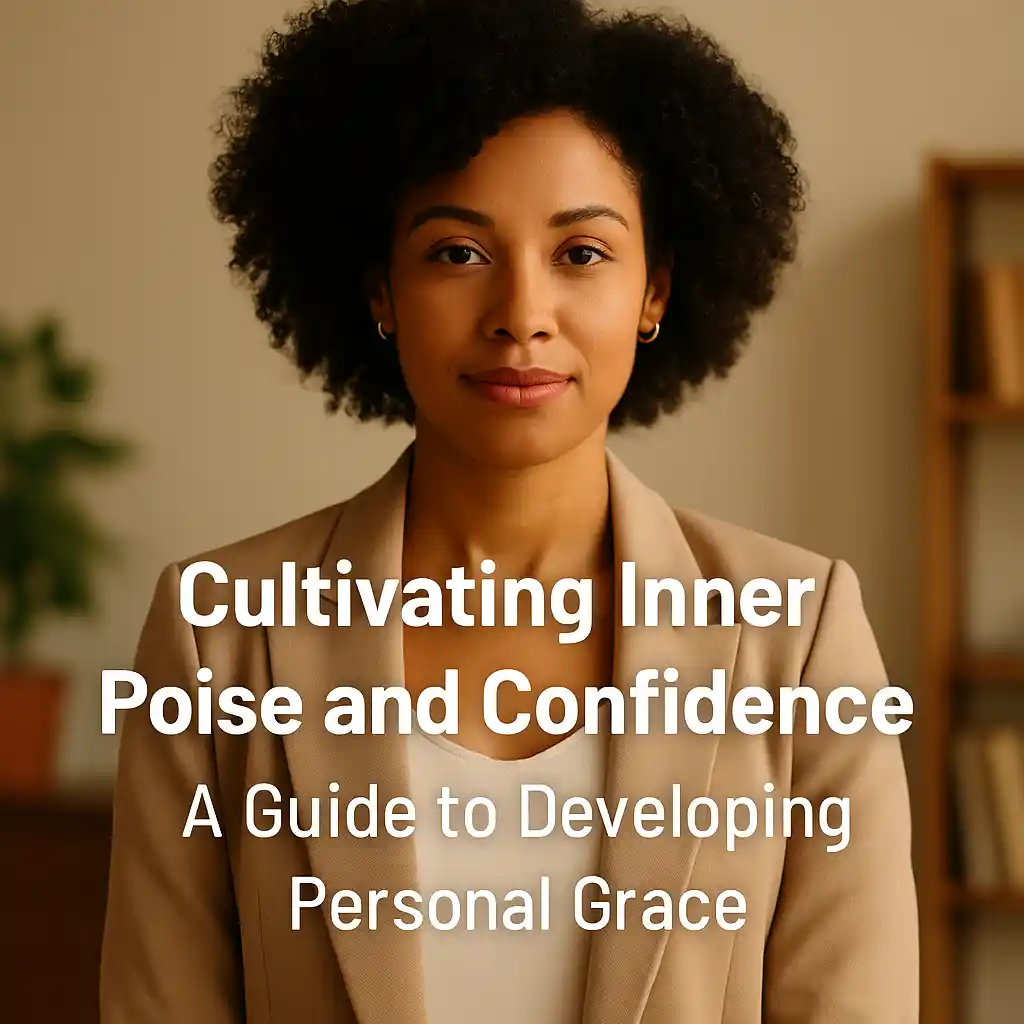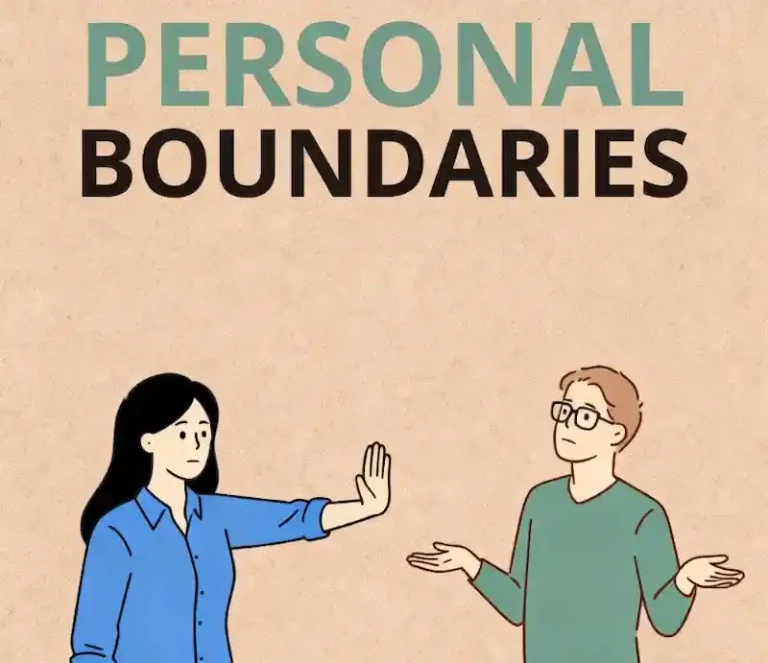Cultivating Inner Poise and Confidence: A Guide to Developing Personal Grace

In today’s fast-paced world, inner poise and confidence have become more than just admirable traits—they’re essential skills for thriving in both personal and professional life. The ability to carry yourself with calm self-assurance while radiating kindness and sincerity draws people in like a magnetic field. True elegance doesn’t depend solely on physical beauty or social status; it’s a harmony of inner character and outward presentation.
This guide will explore the foundations of personal grace, practical ways to develop it, and real-life examples of how Americans embody these timeless qualities. Whether you’re looking to excel at work, strengthen relationships, or simply feel more comfortable in your own skin, cultivating personal grace can transform the way you’re perceived—and the way you see yourself.
What Is Inner Poise and Confidence?
At its core, inner poise means remaining steady and composed regardless of life’s uncertainties. It’s about staying grounded in your values, even when under pressure. Confidence complements poise by giving you the courage to step forward, speak up, and take action when needed.
American author Maya Angelou once said, “Stand up straight and realize who you are, that you tower over your circumstances.” That’s the essence of inner poise and confidence—a quiet strength that inspires trust without arrogance.

The Foundations of Personal Grace
Grace isn’t merely about knowing which fork to use at dinner; it’s a deeper, more holistic quality that blends self-awareness, empathy, and refined social presence.
1. Inner Calm and Self-Assurance
Inner calm allows you to face challenges without overreacting. Imagine a serene lake—still on the surface but full of life beneath. In the workplace, this quality helps you navigate conflict without losing composure, making you a reliable presence when others might panic.
Self-assurance, meanwhile, stems from trusting your abilities. In sports, think of tennis champion Serena Williams—her confidence isn’t about boastfulness, but about years of preparation and self-belief, which allow her to perform at the highest level even under immense pressure.
2. Kindness, Sincerity, and Authenticity
Poise without kindness can come off as cold. Grace without sincerity feels hollow. In American culture, figures like Fred Rogers (of Mister Rogers’ Neighborhood) remain iconic because of their authenticity. His gentle manner wasn’t a performance—it reflected a lifetime of genuine care for others.
A 2022 Pew Research Center survey found that 68% of Americans value kindness and honesty in leaders more than charisma. This demonstrates that lasting respect comes from authenticity, not flashiness.
How to Cultivate Inner Poise and Confidence
Developing these qualities isn’t a weekend project—it’s a lifelong journey. Here are three powerful strategies.
1. Expand Through Reading and the Arts
Reading broadens your mind, deepens empathy, and enhances your worldview.
- Biographies: Learn from the lives of figures like Michelle Obama, whose poise under political and personal scrutiny has inspired millions.
- Literature: Explore authors like Toni Morrison or F. Scott Fitzgerald to expand your emotional and cultural understanding.
- Arts: Attend galleries, concerts, or theater performances. Artistic exposure sharpens your aesthetic sensibilities, which subtly influence how you present yourself.
2. Master Social Etiquette and Communication
In the U.S., social etiquette can make or break first impressions. Mastering basic courtesies—like a firm handshake, polite greetings, and active listening—signals respect for others.
Practical tips:
- Listen more than you speak—this shows humility and engagement.
- Maintain eye contact to convey sincerity.
- Use positive language in emails and conversations.
Oprah Winfrey, one of America’s most respected public figures, is known for her ability to make guests feel heard and valued—a hallmark of personal grace.
3. Foster Character and Composure
Daily habits build long-term traits:
- Reflect: Spend five minutes each night journaling about moments you handled well and moments you could have shown more poise.
- Practice patience: Whether in traffic or during a tense meeting, train yourself to respond thoughtfully rather than react impulsively.
- Stay true to values: Consistency in words and actions builds trust and a sense of inner stability.

Real-World Examples That Reflect Poise and Grace
- Michelle Obama – Blended elegance with relatability during her time as First Lady.
- Tom Hanks – Widely respected for his humility and warmth in Hollywood, an industry often criticized for ego-driven behavior.
- Denzel Washington – Known for his calm demeanor and respectful public presence, both on-screen and off.
These individuals demonstrate that cultivating personal grace isn’t about perfection—it’s about showing up with integrity and consistency.
Practical Daily Practices for Poise and Confidence
To integrate inner poise and confidence into your life, start small:
- Mindful Mornings – Begin each day with deep breathing or meditation to center yourself.
- Dress Intentionally – Wear clean, well-fitted clothes that reflect respect for yourself and the occasion.
- Practice Gratitude – Studies from Gallup show that people who express gratitude daily report 20% higher self-confidence.
- Limit Negative Self-Talk – Replace “I can’t” with “I’ll try” to shift your mindset.
- Engage in Active Listening – In every conversation, aim to understand rather than simply respond.
Why Inner Poise and Confidence Matter in the U.S. Context
In American culture, success is often linked to confidence, but without humility and authenticity, confidence can be perceived as arrogance. Poise bridges this gap. Whether you’re interviewing for a job, networking at an industry event, or navigating personal relationships, inner poise and confidence help you communicate competence while remaining approachable.
Conclusion: Becoming Your Most Graceful Self
Grace, like confidence, is built over time through consistent practice. Cultivating personal grace means combining inner calm, self-assurance, kindness, and refined etiquette into a seamless expression of who you are.
As the American educator and writer Dale Carnegie once suggested, people rarely succeed without the ability to work well with others. Poise and grace are the social skills that elevate your personal and professional presence, leaving an impression that lasts.

What practices have helped you develop inner poise and confidence? Share your thoughts in the comments, pass this guide along to a friend, and explore our related articles on personal growth and self-presentation to continue your journey.






